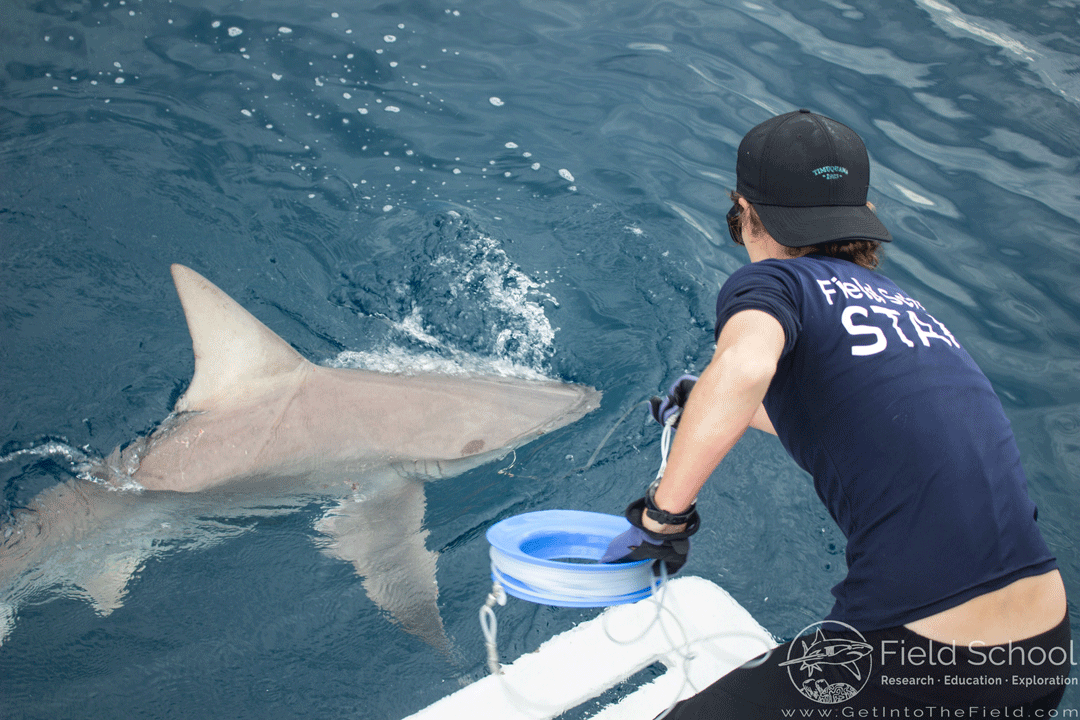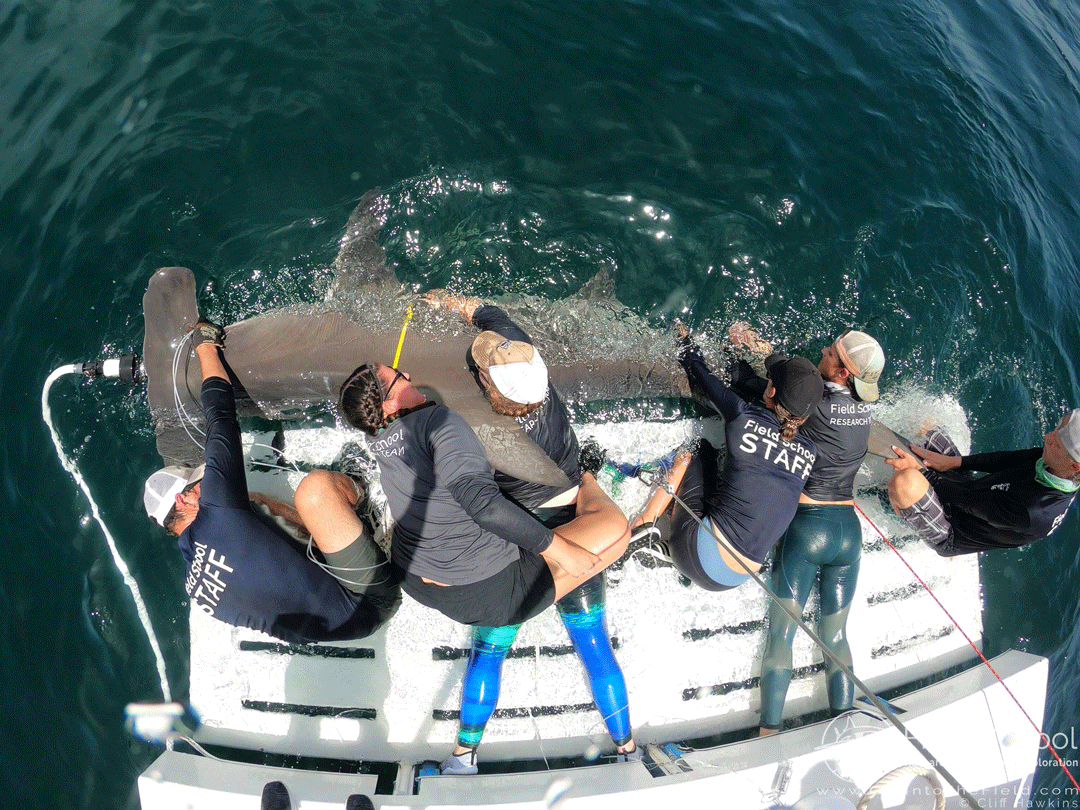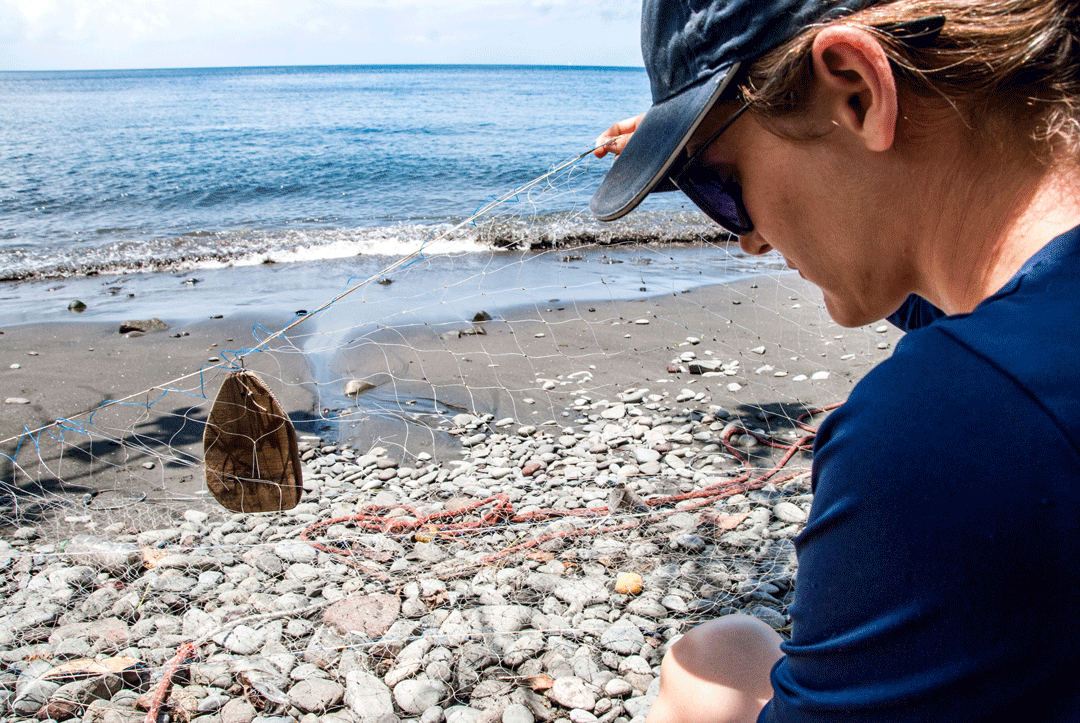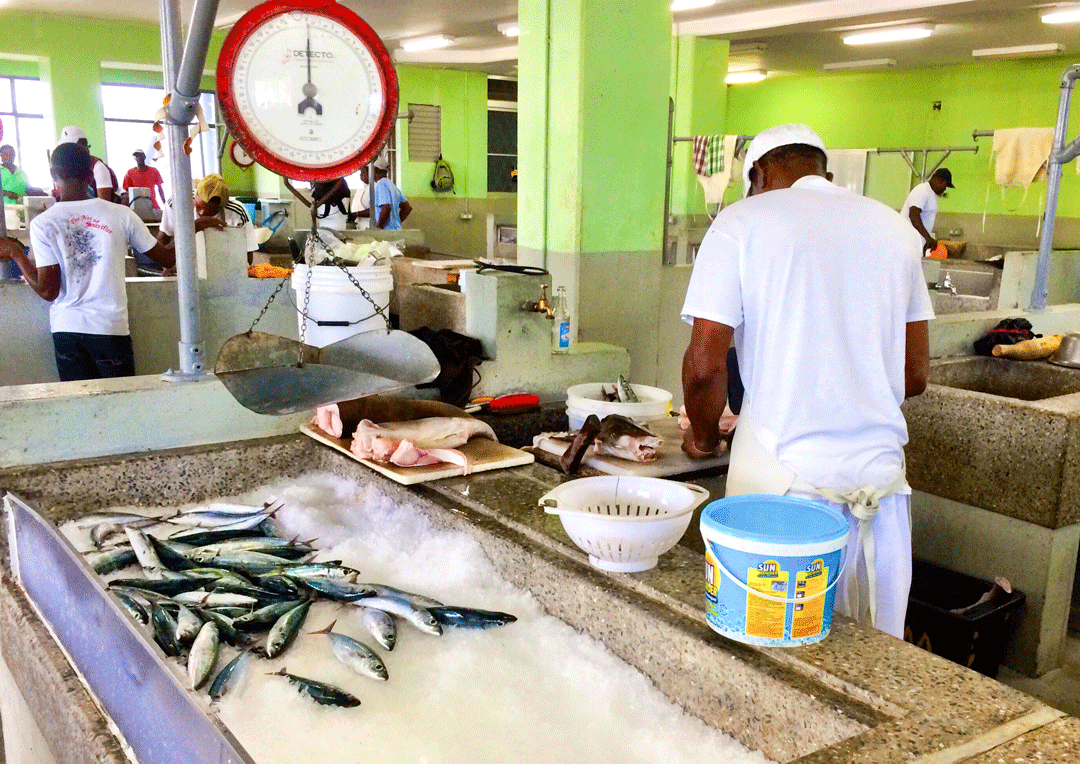The challenges built into marine conservation biology

The kind of data collected by conservation biologists can vary tremendously. Here, as part of my research in Florida, I bring a healthy sandbar shark towards the research vessel for a quick scientific work-up. Small tissue samples from sharks can provide important data about their physiology and population health. Photo © Chris Brown | Field School
I teach a Marine Conservation Biology course at the University of Miami’s Rosenstiel School of Marine and Atmospheric Science, and on the first day of class, I talk with my students about the inherent tensions built into the topic. Biology—and science in general—is concerned with using objective methods to learn more about the natural world. The expectation is that scientists are also objective—that their personal biases, or beliefs about how the world works, never impact how they conduct their research. In reality, all scientists have their own biases and thoughts about what’s important, and all scientists hope that the science they do will yield interesting, exciting results. No one spends their entire life researching something that doesn’t feel important to them, or is just as happy to get non-significant results as to make a major discovery.

Data from large animals (like this great hammerhead) can provide vital information to help conserve threatened species that make long distance migrations, but the sensitivity of hammerheads to capture stress mean that work-ups must be as quick and minimally invasive as possible. Photo © Field School
There is also an inherent tension in Marine Conservation Biology between the “biology”—the objective and testable data scientists generate—and the “conservation”—the part of our work that has practical, real-world implications for biodiversity, species survival, and the health of our planet. Conservation biologists approach science with the moral or ethical goal of conserving nature, which makes them different from other scientists in important ways. They acknowledge in their job title their personal moral judgment that conservation is good and a lack of conservation is bad.

Not all conservation-relevant research needs to involve working with animals. Talking to fishermen and learning about the types of fishing gear they use and the habitats they fish in can also provide critical data for improving conservation and management. Photo © Julia Wester | Field School
Science itself has built-in limits to the kind of questions it can answer. It can tell us a lot about the impacts of our actions and their possible outcomes. It can say, “if you remove this number of fish from a population, the population will begin to decline at this rate,” or “if you clear this amount of habitat, it will have that effect on water quality”. It can answer questions about how the world was, is, and likely will be (and can tell you how much confidence you should have in those answers based on the quality and amount of data the conclusions are being drawn from). What science cannot do is tell us what the world should look like or what actions we should take. Managing natural resources always involves trade-offs. Reducing fishing pressure this year may yield more fish in years to come, but it also reduces fisher’s incomes now. Decisions about what the right thing to do is cannot be made exclusively using scientific data. Data can inform our decisions by helping us to understand the potential impacts of our actions, but that knowledge does not absolve us as a society of the need to do the difficult and thorny work of weighing our ethical and moral values, our present and future economic interests, and the best scientific data available to determine the best courses of management action.

Fish markets like the one in Saint Vincent's capital city, Kingstown, can provide vital information about local fisheries, helping to answer questions like: what's being caught? How large are the fish being sold? What do different types of fish cost? What is most popular with consumers? Photo © Julia Wester | Field School
These moral and value trade-offs cannot be teased apart from research on shark fisheries, making my work necessarily complex and challenging intellectually and personally. On the one hand, I have devoted my career to studying sharks and (luckily for me), find them to be incredible and endlessly fascinating animals. On the other, it is impossible to truly get to know the people whose livelihoods are entwined with the species I study and not have their economic well-being and food security matter to me. My pro-environmental values mean I want to see better protections for sharks, but those values aren’t always in agreement with my equally deep belief that access to healthy and affordable food is something all people should have. Most of my research happens at the intersection of questions about how humans relate to nature and scientific questions about shark species, populations, and sustainable fisheries. This means my research, and the answers it can offer us, are usually messy and full of shades of grey. As I dive into these ideas in future blog posts, we’ll tie these broader ideas about the strengths and limits of science and conservation biology to my work in Saint Vincent and explore how conservation issues are always further complicated by local contexts.

A fishing vessel is moored off the leeward coast of Saint Vincent. Information about the number of vessels involved in a fishery and their size can also be used to study fishing effort. Photo © Julia Wester | Field School
